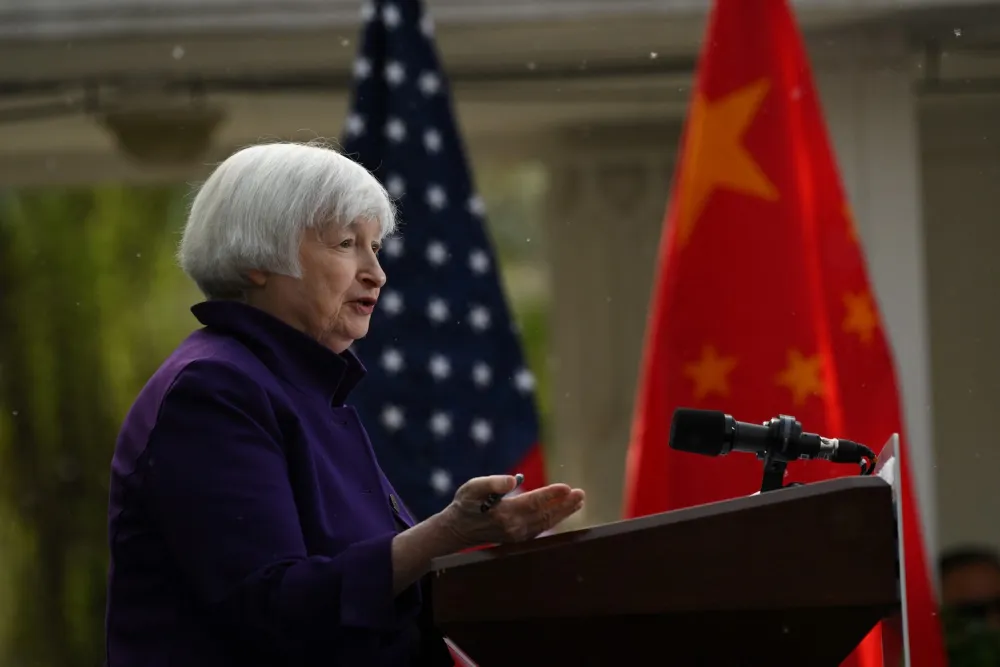
作者/Author(s): Keith Johnson
網站來源/Source: Foreign Policy
日期/Date: 04/08/2024
關鍵字/Keywords: 經濟
摘要:
美國財政部長珍妮特·葉倫告訴中國官員,北京的出口驅動經濟模式造成了貿易不平衡,威脅到全球經濟,清潔能源首當其衝。數十年來,世界受惠於低價的中國產品,但這也損害了發展中國家的製造業,引發國內不滿。
- 現今各國政府都在努力減少對化石燃料的依賴,清潔能源製造業成為重要利基市場。
- 中國太陽能板公司的產量狠甩外國勁爭對手一大截,但在國內需求不大。因此,許多國家購買了相對便宜的過剩太陽能板。同樣的情況也發生在電動汽車上。
- 耶倫的說法指出了一個三體問題:
- 首先是廉價的清潔能源,目前全球正在向清潔能源過渡,以減少溫室氣體排放,防止地球溫度迅速上升。雖然中國是清潔能源產品的主要生產國和使用國,但期也嚴重依賴煤炭發電廠,中國也是惡名昭彰的汙染國之一。此外,發展中國家對中國不公平的貿易行為、人為壓低產品價格和傾銷行為感到不安。
- 其次,美國的保護主義經濟政策愈演愈烈。中國的貿易政策旨在削弱其他國家的貿易競爭力,而美國則尋求保護本國產業免受外國衝擊,重振國內製造業。
- 第三,除了出口驅動模式,中國似乎沒有其他經濟增長的選擇。中國可以繼續成為全球生產大國,但也得想辦法增加國內經濟消費。
Summary:
The US Treasury Secretary, Janet Yellen, told Chinese officials that Beijing's export-driven economic model creates trade imbalances that threaten the global economy, especially in clean energy. For decades, the world welcomed cheap China products, but it also impaired developing countries' manufacturing sector and created domestic resentment.
- Clean-energy manufacturing is a critical niche as governments are trying to reduce reliance on fossil fuels.
- Chinese solar panel companies can singlehandedly outproduce their foreign competitors, but do not have much local demand at home. Therefore, many countries bought relatively cheaper oversupplied solar panels. The same case happened in electric cars also.
- Yellen's message represents a three-body problem:
- The first concerns inexpensive clean energy as the world is undergoing a transition to cleaner energy sources that reduce greenhouse gas emissions and prevent the earth's temperature from rising quickly. Although China is the main producer and user of clean energy products, it is one of the notorious polluters due to its heavy reliance on coal plants. Further, developing countries felt uneasy about China's unfair trade practices, artificially low product prices, and dumping practices.
- The second concerns the US's increasingly protectionist economic policies. While China's trade policies aim to undermine others' trade competitiveness, the US seeks to protect its industry from foreign shocks and reinvigorate the domestic manufacturing sector.
- The third is that apart from the export-driven model, China does not seem to have other alternatives for economic growth. While China can continue to be a global production powerhouse, it must also increase domestic economic consumption.
